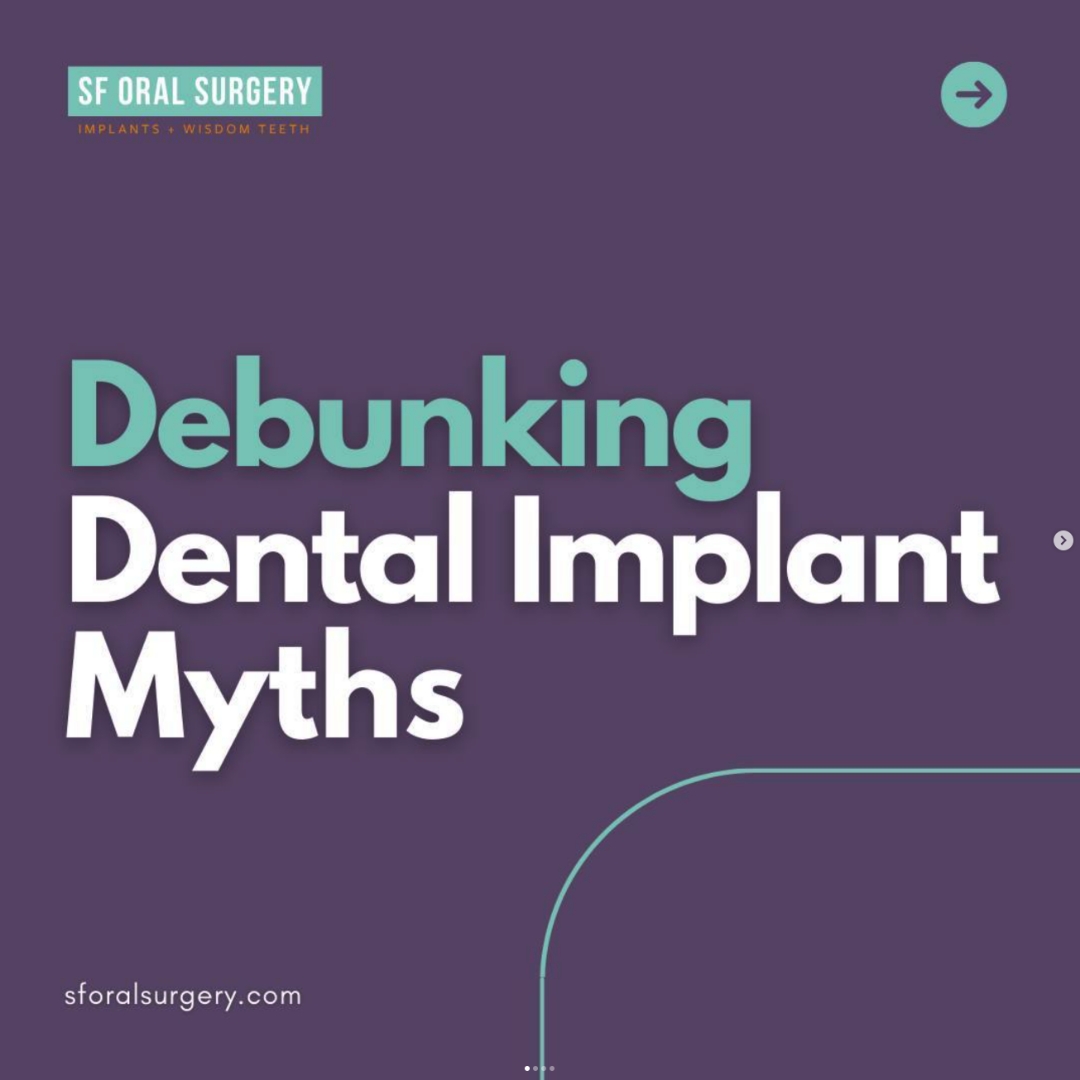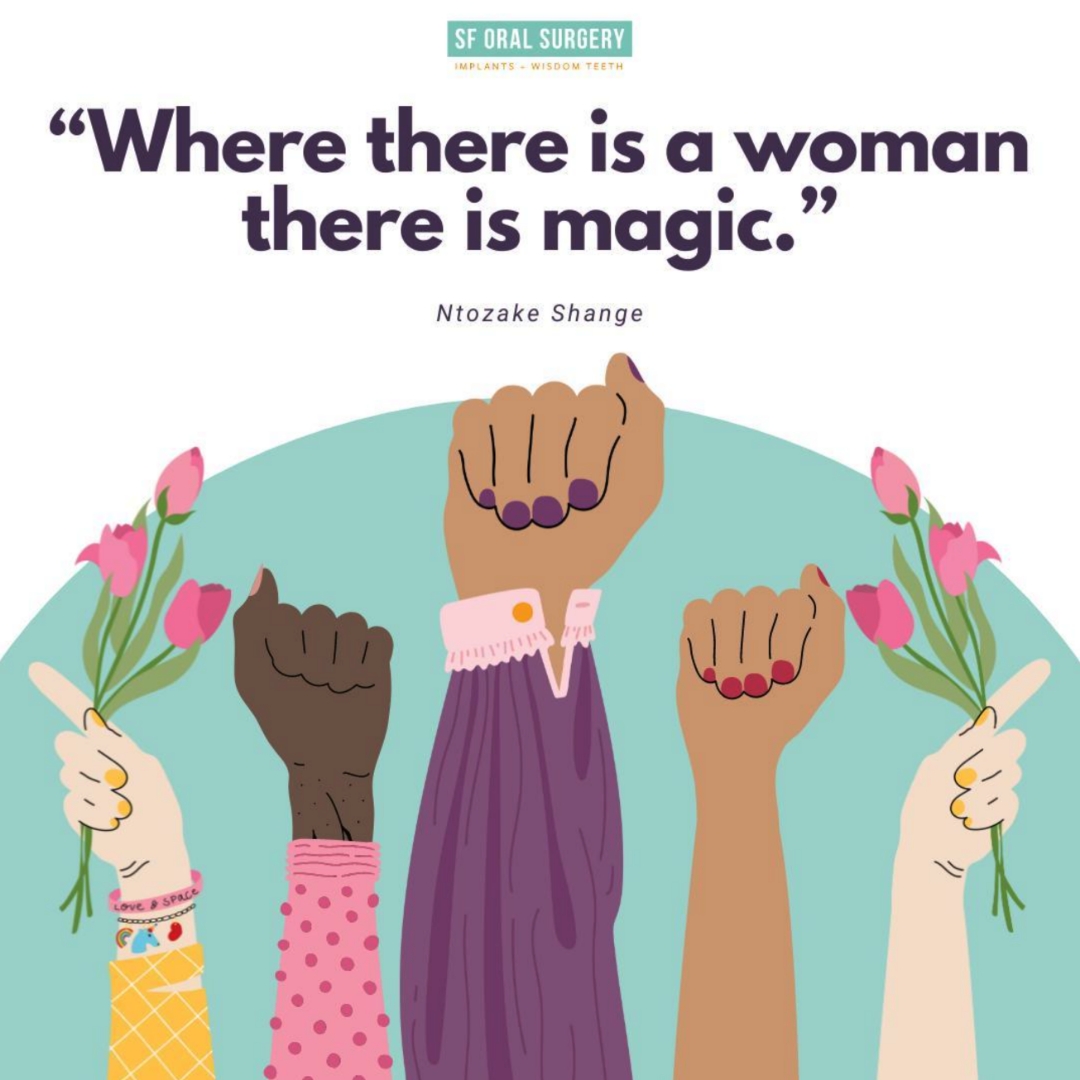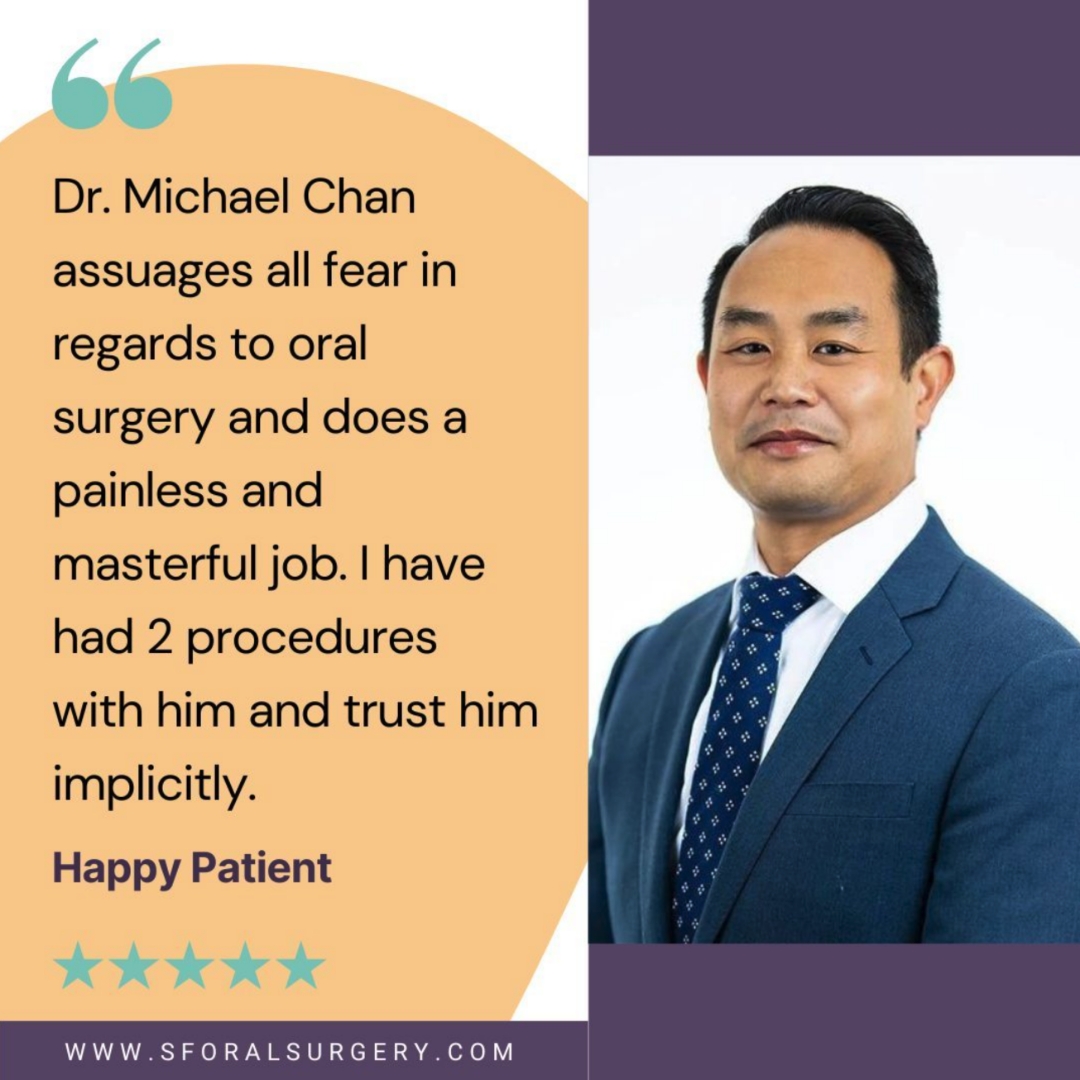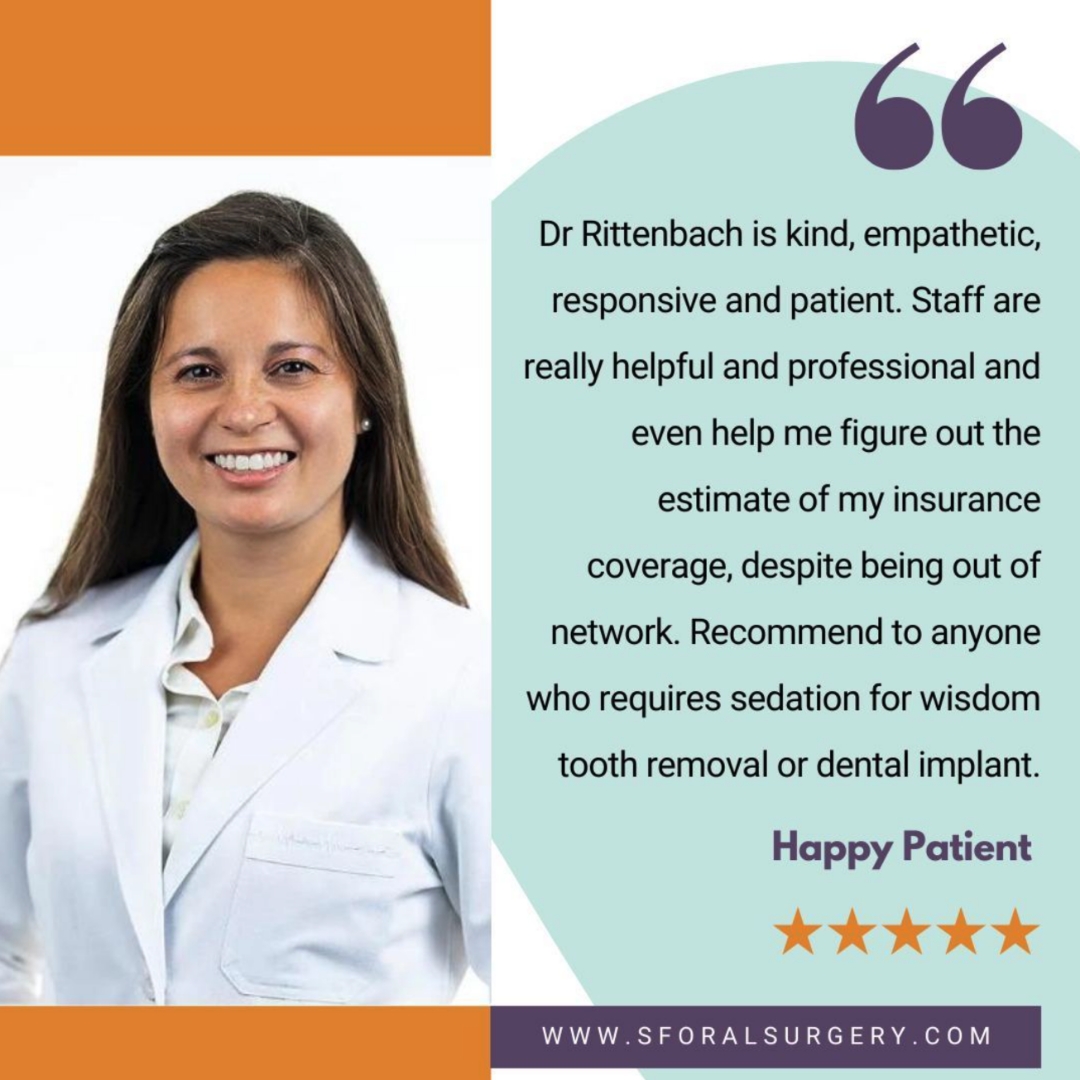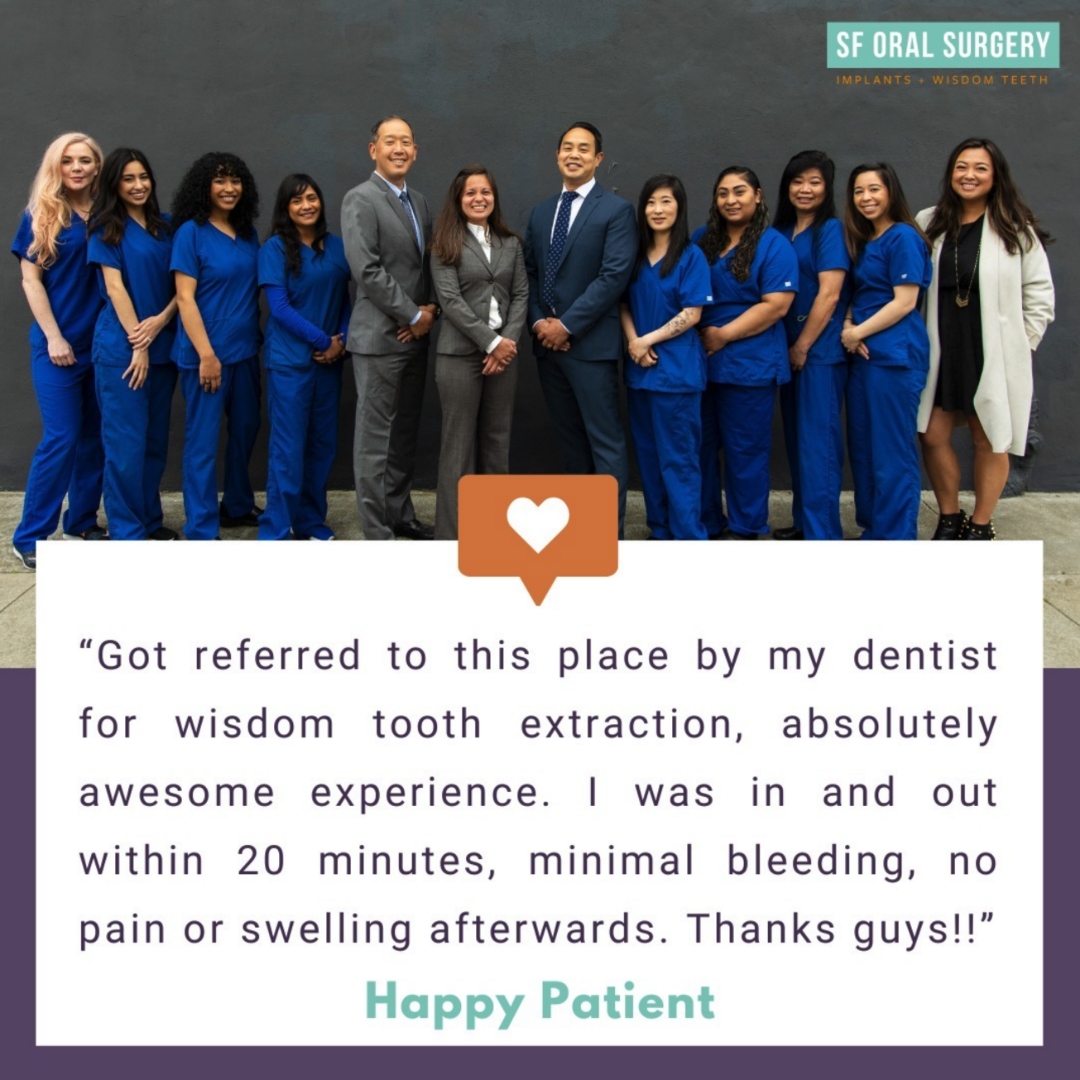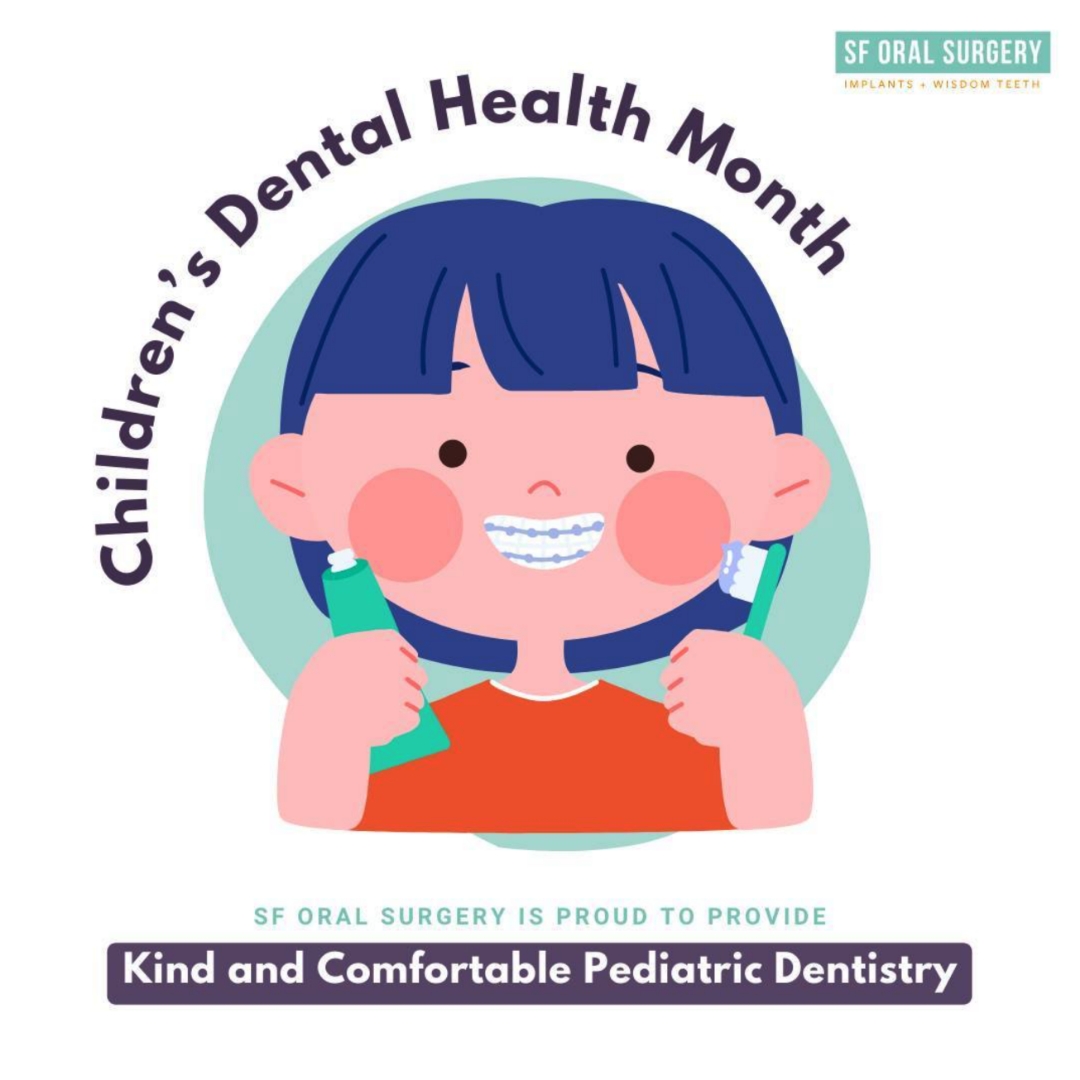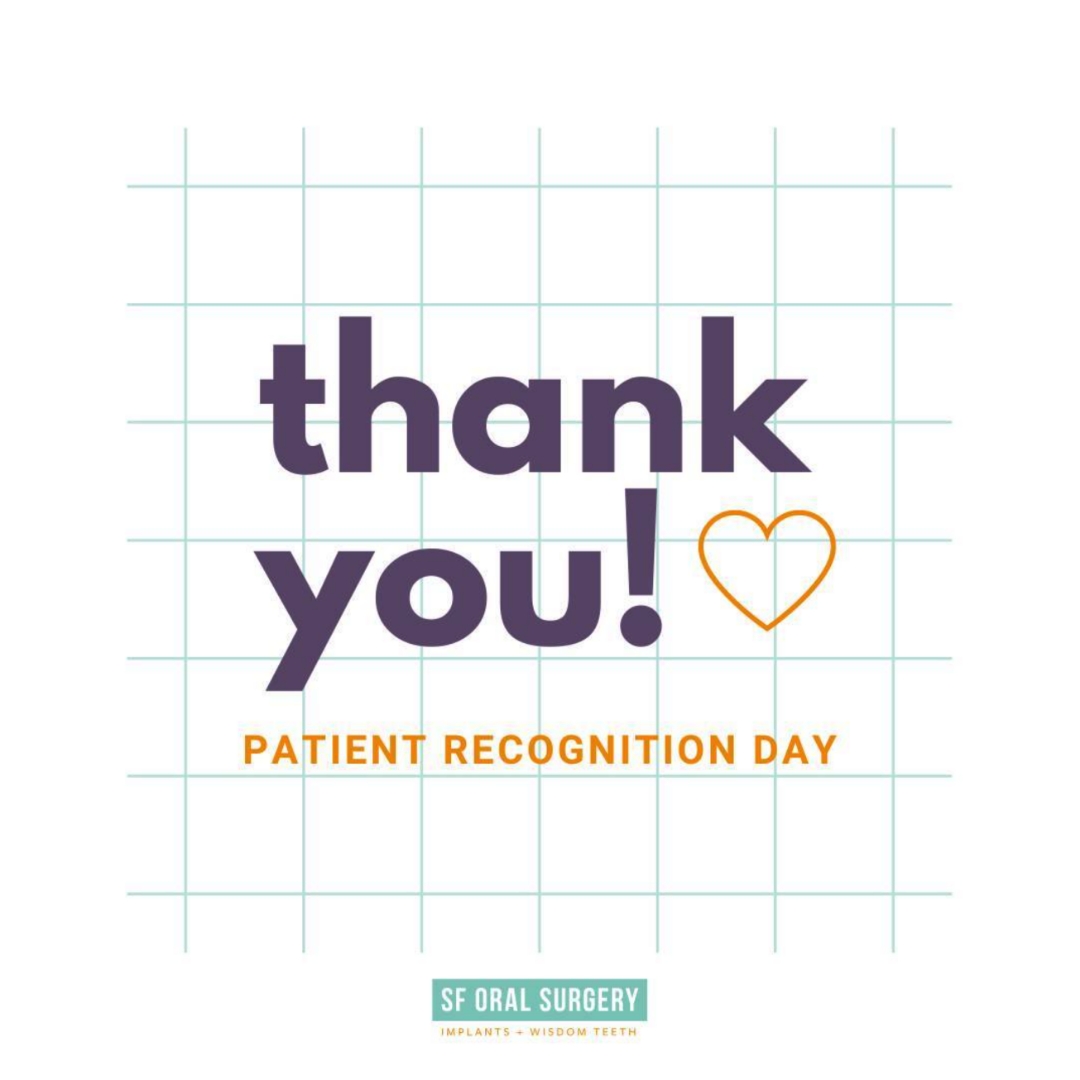Dental implants form the groundwork to place prosthetic, natural-looking teeth for San Francisco residents who have lost a tooth, or in some cases, require an entire set of new teeth. As an alternative to dentures and bridges, dental implants, coupled with prosthetics, mimic the look and function of your natural teeth. Dental implants allow you to brush, eat, and smile with confidence. At SF Oral Surgery, we specialize in dental implants that provide our San Francisco patients with the most advanced dental technology available that is proven to restore our patient’s dental health.
What Are Dental Implants?
Whether you’ve had to have a diseased tooth that cannot be treated with conventional dentistry removed, or you have lost a significant amount of your natural teeth, and those that remain are not able to provide you with the sufficient capability to do their intended “job,” dental implants are designed to replace the root(s), crowns, functionality, and appearance of natural teeth.
At San Francisco Oral Surgery, our team of skilled oral surgeons affix a biocompatible metal, usually a titanium rod directly into your jaw bone to create an anchor that mimics your tooth’s natural root. At the same time, an abutment is connected to the top of the dental implant. Once the implant fully fuses with the jaw bone, the prosthetic tooth is carefully attached to the post.
If patients wait too long to replace the missing tooth or teeth, their jaw bone will begin to recede because it requires the tooth’s root to sustain its growth. It is a surprise to many people that their bones are, in fact, living tissue. So as the jaw bone recedes, it not only alters the entire contour of the lower half of the facial structure, making patients look older than they really are, but the lost jaw bone also may make it difficult, if not impossible, to successfully place dental implants. This is why we encourage San Francisco residents to address their missing teeth as soon as possible.
What Types of Prostheses Are Available?
The choice of prosthetic teeth depends on how many teeth are extracted and where they are located. There are three different options available to replace natural teeth:
Crown For a Single Missing Tooth
A crown needs to be attached to its own dental implant, matching one implant to one prosthetic. Crowns are used to replace singular missing teeth, whether you are only missing one tooth or the teeth you are missing are not adjacent to each other.
Partial Prosthesis (Fixed Bridge) For Two or More Teeth
The partial prosthesis normally requires only two or three dental implants, potentially allowing a smaller number of implants to replace a greater number of teeth. The implant-supported bridge can replace multiple adjacent missing teeth.
Complete Prosthesis For All Teeth in Your Upper or Lower Jaw
There are different options for the number of dental implants recommended based on whether the prosthesis is removable or fixed. An overdenture (removable prosthesis) attaches to a bar or ball in socket, and you can remove it yourself, while a dentist can only remove a fixed prosthesis. Some dentures are permanently attached to dental implants, giving you permanent teeth that you brush and floss like your original smile. For qualified patients who want these permanent implant-supported dentures, you can have your smile restored in one visit.
Benefits of Dental Implants
Maintain facial structure by preventing bone Loss
Look and function like natural teeth
Improve Oral Health
Last a lifetime
Increase comfort while talking and chewing
Protect adjacent teeth
Patient Results
Why Choose Dental Implants Instead of Other Replacement Options?
It is quite possible that you’re thinking to yourself, “Why should I spend the time and money on dental implants instead of dentures?” Perhaps your parents and grandparents wore dentures, and you saw the lengths they had to go to just to be able to eat. If you do some research about the downsides of dentures, we are pretty sure that you will quickly conclude that they are both painful and embarrassing – just to name a few of the problems they pose.
Disadvantages of Dentures
First of all, dentures need to be removed and soaked in a cleansing solution, unlike dental implants that are brushed and flossed like natural teeth. Another unpleasant part of wearing dentures involves the sticky paste needed to keep them from slipping or falling out of place. Imagine having lunch with co-workers or being in an intimate situation when suddenly you find your dentures floating around in your mouth. The fear that this very real possibility will occur may interfere with your lifestyle on many levels. In addition to the not-so-reliable adhesive paste is that dentures have no roots. So, what will maintain the health of your jawbone and prevent jawbone resorption?
Disadvantages of Bridges
Bridges may save you a few dollars, but they are a temporary fix in the long run. Bridges are notorious for breaking. They are fragile and will need to be replaced sooner than later. If you are missing a tooth or two teeth side by side, your dentist will have to file the healthy teeth on either side of the missing tooth down to nubs so they can have artificial crowns (which are pricey) attached. Then, fragile wires will hold a prosthetic tooth in the middle. Not only are bridges and dentures antiquated and impermanent, but it is also only a matter of time before they become more of a hassle than they’re worth.
Kind and Compassionate
Who Is a Good Candidate for Dental Implants?
Before undergoing a dental implant procedure, one of the following doctors Dr. Michael Chan, Dr. Kirsten Rittenbach, or Dr. Brian Yang and your restorative dentist will need to review your medical and dental history. San Francisco patients who have experienced bone loss may require bone grafting or other procedures to prepare for dental implants.
The Dental Implant Placement Process
If you are a good candidate for dental implants, Dr. Chan, Dr. Rittenbach, or Dr. Yang will schedule an appointment to place the dental implants. This procedure can be performed using local anesthesia, but many San Francisco area patients prefer general anesthesia to avoid discomfort and anxiety, as this is a rather involved procedure. Oral surgeons are trained in the safe administration of anesthesia during dental implant placement, a unique qualification that makes our team great to help you restore your smile.
Implant Placement
Your first and most important appointment involves the placement of dental implants directly into your jawbone to replace the missing root. It will take three to four months for the implants to fuse with your jaw bone and Dr. Chan, Dr. Rittenbach or Dr. Yang will schedule follow-up exams to ensure that you are healing well.
Osseointegration
During your recovery from the first surgery, you may need to wear a temporary tooth replacement and restrict your diet to soft foods. If you have had one dental implant placed, you will be advised to chew your food on the other side of your mouth.
Abutment and Crown Placement
Once the implants have completely fused with your jaw bone, your restorative dentist will then proceed to connect your new tooth or teeth to the post that is connected to the dental implant. They will attach small posts to connect the artificial teeth that replace your natural teeth. Once healed, your new teeth will function exactly like your natural teeth.
The ideal team for dental implant placement is an Oral and Maxillofacial Surgeon and Restorative Dentist. Dr. Michael Chan, Dr. Kirsten Rittenbach or Dr. Brian Yang are qualified Oral and Maxillofacial Surgeons with years of experience performing dental implant surgery. Your dentist will create any prosthesis, both temporary and permanent, and eventually fit the permanent prosthesis.
For San Francisco patients who prefer immediate dental implants, Dr. Michael Chan, Dr. Kirsten Rittenbach, or Dr. Brian Yang will collaborate with your restorative dentist. If feasible, your interdisciplinary team can work together to restore the function and appearance of your teeth with just one procedure.
Surgical Advancements
SF Oral Surgery offers San Francisco residents the option of combining the two-stage dental implant surgery into a one-stage procedure. While you will still need at least six weeks to heal before your prosthetic teeth can be placed, the recovery time is much faster than the traditional method. Additionally, dental implant placement can be performed immediately following tooth extraction. This method of immediate dental implants reduces the need for additional surgery and restores the appearance and function of your teeth in one procedure.
Dental Implant Recovery Process
After our doctors have completed your dental implant surgery, one of our Surgical Assistants will go over post-operative care instructions with you or your escort. Dependent on the type of sedation used for your procedure, you will then be released either to the care of a trusted family member or friend who will drive you safely home, or you may be able to depart the practice on your own.
24-hours After Surgery
- Our doctors utilize only the most advanced techniques and tools to perform dental implant placement; therefore, you may only experience minor discomfort and tenderness in your treatment areas.
- Medications will be prescribed for you to take post-operatively. Oftentimes these include a course of antibiotics, an antiseptic mouth rinse and an anti-inflammatory. You may use over-the-counter pain medication such as Tylenol to manage discomfort. In the off-chance stronger pain medications are needed, they will be prescribed by the doctor.
2-5 Days After Surgery
- You should expect swelling to increase slightly and discomfort to decrease during this timeframe.
- Follow the recommended oral hygiene aftercare instructions provided by our doctors.
Up To 2 Weeks After Surgery
- Continuing a soft food diet is recommended during this time, with a gradual return to your regular diet. Avoid drinking anything that is too hot or too cold.
- Avoid extreme physical activities until you have been released by our doctors.
6 + Weeks After Surgery
- You should be completely recovered from your dental implant surgery. Be sure to speak with your doctor to find out an expected time frame to full recovery, as it will depend on your specific treatment plan and any pre-surgeries you may have required.
How Do I Care for My Dental Implants?
Dental implants function the same way as your natural teeth. This means that you will need to continue good oral hygiene such as brushing, flossing, and regular visits to the dentist to keep them healthy. Dental Implants are designed to last a lifetime, but it is up to you to continue to treat them with the same care you that would the rest of your teeth to avoid infection which can lead to a condition called peri-implantitis, in which the dental implant becomes loose and falls out. Although this is uncommon, it needs to be stressed that proper oral hygiene is a must.
What a Beautiful Smile Says About You
If you have been living with missing teeth or teeth that are unsightly, you have probably developed some ways to hide them. Perhaps you hide your smiles and laughter behind your hand, or maybe you have just stopped smiling in public completely. As a result, your quality of life and self-esteem suffer. Your smile conveys more about you than you know. Clean, healthy teeth are a sign of good health and hygiene. A bright, shiny smile conveys enthusiasm and confidence that translate into a host of positive benefits. Dental implants allow San Francisco men and women to smile, eat the foods they love, and retain their jaw bone structure.
If you are a San Francisco resident considering dental implants, we encourage you to contact SF Oral Surgery by calling (415) 754-4710 today or using our online form to schedule your consultation.
Read Our Reviews
Request A Consultation
Get To Know Your Team | Follow Us On Instagram
